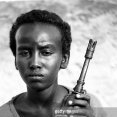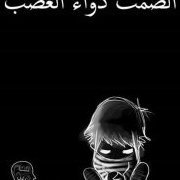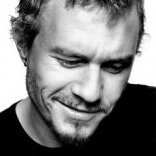Leaderboard
Popular Content
Showing content with the highest reputation since 12/05/2018 in all areas
-
4 pointsNiyaw horta comments kaagu kaama khasaarin aragti saxaad cabirtay oo aad qortay. Laakiin imika waanba sakhraansanay oo kuuma jawaabi karo indrkay talaabo wax waydiiya. Anigu geeridii nebiga ma ogiye
-
4 pointsOn the positive side this shows Somaliland is starting to realize ictiraaf isn't possible and taking more active role in the politics of Somalia.
-
4 points
-
4 pointsDP World completes 400 meter expansion of Somaliland’s Berbera port. 59Shares Friday August 14, 2020 DP World this week announced the completion of a 400-meter expansion of the Berbera port in Somaliland. The Dubai Port Company that is contracted to expand the port said once operational, it will increase the terminal’s capacity by 500,000 TEUs per year and further strengthen Berbera as a major regional trade hub servicing the Horn of Africa. In a tweet, DP World stated: “We have just completed a 400m quay and a new extension at Berbera Port, Somaliland. Once operational, it will increase the terminal’s capacity by 500,000 TEUs per year and will further strengthen Berbera as a major regional trade hub servicing the Horn of Africa.” The news has elicited excitement within the Somaliland government with the vice president Abdirahman Abdilahi saying: “As Deputy President of Somaliland and on behalf of the people, words can’t express my great excitement about the nearing completion of the Berbera port expansion. my gratitude goes to the Sheikhs of the UAE and the DP World.” DP world, the Dubai based world’s largest port operator is the key player in the rebuilding of Berbera, they have invested $442 million for the expansion of the port and are also the economic free zone. It has projected to complete work by February next year. advertisements In 2017 when the original agreement was signed, the CEO of DP World Mr. Sultan Ahmed bin Sulayem drew a parallel between the growth of Dubai and the development path Somaliland is on and added “Our vision is to make Berbera a trading and transportation hub for the Horn of Africa.” Berbera port is among the few corridors in the Horn of African region, which serves for both military and commercial purposes. The Berbera Port was built in 1964 by the Soviet Union and further expanded by the United States of America (USA) in 1982. It has served for both the Soviet Union and the U.S military within a span of 20 years. Once completed, facilities and service will surpass those in the neighbouring Djibouti according to the contractors. According to the DP World, the port will be able to handle the biggest ships compared to the other ports in the region and will complement activities at the Port of Djibouti and the Lamu Port which is also under expansion in the coast of Kenya. The Berbera Port expansion is the largest investment in Somaliland since it parted ways with Somalia in 1991. Work on the port expansion has reduced due to the measures put in place in the fight against the spread of the deadly coronavirus but the Somaliland government and the DP World have projected all facilities will be ready for operation early 2021. “We are very much on course. Of course the coronavirus has affected the speed at which we were on, but we will soldier on and deliver the most modern port facility in Berbera,” an official of the DP World said. The Berbera port expansion, designed to equip the Somaliland port for major vessels and transform it into one of Africa’s pre-eminent facilities. Expansion of the port started early last year with the first phase at a cost $101 million. Federico Banos-Linder, Vice President External Relations, DP World, said once the port is done, Somaliland will be one of the biggest and most modern players in the maritime industry in the Horn of Africa. “Already with phase one of the three phases done, we have increased the container capacity by 50 per cent and pushed volumes by 70 per cent which is a massive improvement. “We are now exporting 4 million livestock from 1.5 million just less than a year ago,” said Banos-Linder. Total investment of the two phases will reach $442m. The port’s current capacity is around 150,000 twenty-foot equivalent units [a measure of ships container carrying capacity] and is set to expand to 450,000 TEUs once development is complete. DP World firm will also create an economic free zone in the surrounding area, targeting a range of companies in sectors from logistics to manufacturing, and a $100m road-based economic corridor connecting Berbera with Wajaale in Ethiopia “Our aim is to make this an important regional hub for the maritime industry in the Horn of Africa,” DP World chairman and Chief Executive Officer Sultan bin Sulayem said. “We are within schedule in our work,” he added. DP World holds a 51 per cent stake in the Berbera port, while Ethiopia holds 19 per cent and Somaliland the rest
-
4 pointsThe recently upgraded Hagreisa land database registry is actually part of a larger project by Somaliland Gov't and SolidBlock Inc. The project will be using state of art block-chain based database to register land titles and other key assets.
-
4 pointsOodweyne They can't keep up. Befuddled, bemused and bewildered by Somaliland’s growing gravitas at international diplomacy. While they play tiddlywinks with Mudulood this and Dhuusomareeb 2.4 that. At least they're a curious bunch.
-
4 pointsThis is great improvement.The land database in Somaliland has been a consistent headache and cause for a lot of troubles including missing files, disputes etc. The introduction of GIS system will greatly simplify while at the same time is more secure and more reliable.
-
4 points
-
4 pointsAnd when they are training our navy and Air force it will be reported as a "Latin American" and an "Eastern European" country respectively
-
4 pointsThe political culture in Somaliland is an egalitarian one. Specially Beesha Dhexe. So for everyone from the unknown to the well known to have equal say and communicate their personal feelings or believes, it is a welcomed sign that the people are moving forward. This is why in Somaliland almost everything is openly discussed and nothing is hidden. The gov't is held to account, the ministers coming on TV explaining their side of the story. You will never see this type of open discussions of gov't ministers and opposition party engaging in lively political discourse about the goings on, anywhere else in the Somali regions. We know Mogadishu Khaire's moratorium on media engagement by his cabinet. We know Cheeseman, after almost 3 years, has never held an open questions interview. The same goes for Puntland where each Hagbad inheritor takes the enclave on a personal ride with no questions asked. So, all these public engagement, is music to my ears that the people are awake and taking part and shaping their future. What other Somalis take for granted, in Somaliland we don't. If we think the gov't is not on the right path, we tell it like it is without mincing words. And not wait until end of the tenor and call it 'what a bad leadersip it was' like Puntlanders do every 4years. Rather, you have to oppose what is wrong and support what is right every single day.
-
4 points@Abtigiisis sending strong "who is the boss" message to Oodweyne.
-
4 points
-
4 pointsAnother musharax sanadkan waa aanadkii faataalayaasha.
-
3 points
-
3 pointsWar yaa Facebook algorithm yaa iga ceshto. Waxaan camal isoo hor dhigaa, aniga 'not interested/block' ku haayaa maba joojinaayo.
-
3 pointsCarfaat Layskuma hayo in afrikaan iyo amxaaro maamulaan koonfurta, xoogna ku joogaan markaan dhexdeenii is dilnay oo daciifnay. Gaalo kale oo walaalahood ah yaa koofiyad cagaaran u xidhay nimankaasu waa sharciyaysan yihiin. Meesha kaliya oo aan islahaa waa lagu faani karaa waxay ahayd waqooyiga oo aan askari ajnabi ah joogin marnabana aan lagu arag. Laakiin snm waxay noqotay ninkii boqolka soomay oo bakhtiga ku afuray Baqdinta aan iminka qabaa waxay tahay in la arkay meesha aad ka jilicsan tahay oo ah "tol" la'aanta. Taasina waxay keenaysaa in amxaar kuul leh lagula walaaleeyo, dadkaagii soomaaliyeedna cadaw kuu noqdaan. Ugu dambayn Adeer hashaasu waa jabtay, waliba si sahlan geelu haduu jabo ma kabmo waa la qashaa, Hashaas jabtay cuna oo karsada intuu amxaar ceeriin ku cuni lahaa. Afeef Hadaad luuqadayda garan waydo raali ahaw, jiilkii hore yaan kasoo jeedaa. Ogowna aduunka waxaan ugu necbahay caadifadda ka sakow, inaan arko soomaali, soomaali kale maydkiisa kor taagan xataa haduu shbaab yahay.
-
3 pointsXamar iyo shirqoolkeeda ha iska ilaaliyo. Meesha bahalo ka buuxo.
-
3 pointsMasaakiin, maati carruur iyo waayeel ku jiro, maalin walba la duqeynaayo ayuu ku jees jeesteynaaye, arrogantly and proudly. Qofka saas camal ah needs to be brought to earth in a crush. And as a self-admitted jaahil himself, karbaash ayuu wax ku gartaa, not walaaloow iyo ereyo jilicsan. His behaviour also reminded me Caydiid Sn's and Jr's moooryaantiiaa heystay deegaanada Koonfur Galbeed from mid to late 1990s. Saan camal ayee u kibirsanaayeen, faan iyo booto bilaash ah wadeen. Tii ka dhacday Rabi ayaa ogaa, xataa xaasaskooda ka cararay, including Xuseen Caydiid's wife lagu qabtay markii Baydhabo laga saaray in mid 1999. Waala sii daaye oo Xamar aaday. I guess waa dhaqabka 'habraha' - be them in Waqooyi ama Koonfur - dad la dulminaayo faan iyo booto ugu sii daraan.
-
3 pointsSanaag and Maakhir people are the winners. They fully boycotted the Somaliland election two years ago with almost zero members, and today they 100% participated the Puntland election. No one can dispute where they belong. There is nothing more democratic than the people deciding their future by vote without fear. Of the original five districts of Sanaag, only Ceel Af Weyn did not vote.
-
3 pointsFarmaajo pushed the dictatorial limits and that was most likely his downfall. He was truly convinced of his own invincibility till the end. People were also tired of the continued corruption that never went away even though Farmaajo campaigned on a promise to end it. I think this was anti-Farmaajo vote than anything else. Anyways, the country needs prayers and all the help it can get because the new guy was far worse on corruption than Farmaajo. Hopefully HSM learned his lesson and comes up with new ideas to govern the country because he was truly unable to deliver anything meaningful the last time he was given the chance.
-
3 pointsWaa wax lagu tartamo oo lagu faano. Hambalyo imtixaanka dugsiyada sare ee koonfurta Soomaaliya inta ku wada baastay, gaar ahaan kuwa heerka koowaad galay. Reer Koonfur Galbeed on social media are celebrating seeing seven out of the top ten coming from Koonfur Galbeed. Me? I am celebrating to see our young sisters being in the top list.
-
3 points
-
3 pointsWith no visible means of support The unexpected success of Somaliland By Kieran Pender For some time now, our global landmass has been neatly divided into the 193 member states that make up the United Nations. Cartographically, the world has remained remarkably static in recent years, with just one new member admitted to the club of nations in the past decade (South Sudan) and only three in the decade before that. This stasis belies a convenient fiction, however. In a number of places, the cartography does not reflect the reality on the ground. Some examples are prominent – Palestine, say, which is recognized by over two-thirds of UN member states but lacks full acceptance on the international stage. Google Maps uses a dotted line to delineate its border with Israel. Northern Cyprus gets the same treatment: it is recognized only by Turkey. So too does Kosovo, which has received over a hundred diplomatic recognitions. Such cartographic oddities multiplied in the 1990s, during a wave of violent secessionist conflict. In the Caucasus, Abkhazia and South Ossetia broke away from Georgia following the dissolution of the Soviet Union. Georgia claims that both are now Russian-occupied; most locals disagree. Transnistria is a narrow sliver of land between Moldova and Ukraine, which seceded around the same time, as did Nagorno-Karabakh in Azerbaijan. Elsewhere, Iraqi Kurdistan, Western Sahara and Somaliland have similarly found themselves with some degree of sovereignty but without international recognition: “square pegs in a world of round holes”, according to the politics professor Deon Geldenhuys. These de facto nations have all the trappings of statehood – passports, currency, flags, elections, parliaments – but they are routinely ignored by the global community. Isolated from international institutions, formal trade networks and political blocs, such pariah territories have been routinely dismissed – including by institutions such as the European Paliament – as war-torn badlands and hotbeds of organized crime. They were also assumed by many to be transitory, and thus received little scholarly attention. But in time it became apparent that they were not going anywhere. Almost three decades since many of them were spawned, they persist – real on the ground, invisible on the map. In When There Was No Aid: War and peace in Somaliland Sarah Phillips considers a particularly peculiar example. Once a British protectorate, Somaliland enjoyed a fleeting week of independence in 1960 before merging with its southern neighbour, Italian Somaliland, to form Somalia. It was an unhappy union. Famine and oppression from the south ultimately precipitated civil war, and in 1991 (northern) Somaliland unilaterally declared independence. Most separatists have had a patron state to provide support and limited recognition. Abkhazia, for example, was recognized by Moscow in 2008 after the Russia–Georgia war – and diplomatic acknowledgement followed from several states allied with the Kremlin. The Somalilanders had no such fortune; pleas for international endorsement of their independence fell on deaf ears. Hence the title of Phillips’s book. While most post-conflict zones benefit from considerable international assistance, Somaliland has received barely a penny. International isolation and negligible aid were an inauspicious start for this fledging statelet, particularly as billions of pounds and swarms of international advisers poured into Somalia. Yet for all this assistance Somalia remains to this day racked by violence, piracy and terrorism. Somaliland, meanwhile, has emerged as a beacon of hope in the Horn of Africa – stable, relatively democratic and broadly functional. For Phillips, an expert on international development, Somaliland therefore provides a curious example of development without intervention. “For all the doubts raised about the effectiveness of international assistance in advancing peace and development,” she writes, “there are precious few examples of developing countries that are even relatively untouched by it.” As a result, it is ordinarily very difficult to consider counterfactuals, which question whether aid is actually helpful. Somaliland’s example offers partial clues. Its peace was “painstakingly negotiated under the trees at dozens of clan-based conferences”, while Somalia’s was “negotiated in five-star hotels funded by the United Nations”. Only one endured. When There Was No Aid is the result of extensive fieldwork. Phillips interviewed hundreds of people across a range of fields to understand how Somaliland secured stability while its southern neighbour remained mired in violence. She has drawn on this impressive research alongside other scholarly literature to produce a compelling account of Somaliland’s path to peace. While it is evidently written with an academic audience in mind – the book is grounded in theory and has an exhaustive reference list – When There Was No Aid is lively and accessible. Phillips makes a compelling case for the unexpected positives of non-recognition. As one minister tells her, the country’s isolation has been a “blessing in disguise”. Because the peace process was free from “institutional endpoints favored by international donors”, Somalilanders, the author tells us, “had the freedom to cherry-pick from local and international institutional governance models and to experiment”. This enabled the country to fashion innovative models blending Western governance with local customs. A system of clan-based proportional representation (the beel) was adopted, while an unelected house of elders (the Guurti) was integrated alongside a democratic two-tier legislature, presidential executive and an independent judiciary. While these structures are not faultless – Phillips suggests that the once influential Guurti has lost local legitimacy – their endurance stands in contrast to Somalia’s abiding governance crisis. Phillips’s most original contribution comes through her observation that stability has been maintained largely through words rather than actions. She suggests that while Somaliland’s institutional capabilities remain limited, and open to corruption – “the law here is fifty US dollars”, says one security official – the “othering” of Somalia’s continuing violence and the desire for international recognition have incentivized peace. Somalilanders, she argues, “have responded to institutional weakness by discursively compensating for it on the level of identity and by asserting their ability to maintain peace without strong institutions on the basis of that identity”. Her evidence for this is persuasive. She points to a contested presidential election in 2003, when many observers expected violence. Instead, the chair of the defeated party, Kulmiye, which had lost by just 0.01 per cent of the vote, publicly rejected the idea of forming a parallel government, saying: “I won’t go down that road, because no one can guarantee that we won’t end up like Mogadishu”. Phillips cites the absence of piracy in Somaliland as another measure of its success, putting this again down to the social consensus. As a local analyst tells her: “the population is alert to what the international community needs to see to recognize Somaliland. They want to protect that”. Phillips is also a shrewd detective. She highlights the pivotal role played by female activists, who can “cross clan lines” to facilitate dialogue because they hold dual clan identities – familial and matrimonial. And she identifies the centrality of one local boarding school, Sheekh Secondary – privately funded but non-fee-paying – to the country’s political make-up: of the fifty or so most influential political actors during the 1990s, fully half had attended the small, merit-based, cross-clan institution. One graduate tells Phillips that the alumni network functioned “like a secondary tribe”, aiding political cohesion during the turbulent decade. While some observers, such as the ethnologist Markus Hoehne, have called Somaliland a “sui generis” case, with little for us to learn from, Phillips disagrees. The country’s experience may have been idiosyncratic, but “this does not mean the underlying drivers of its trajectory do not have broader relevance”. In her eyes, Somaliland indicates that development institutions have been asking the “wrong question” when it comes to external intervention. “Aid matters less than we think it does because it does not alter the asymmetries that make it difficult for countries in the Global South to extract themselves from violence and poverty.” These observations are astute, and it thus seems a shame that they were crammed into the nine-page conclusion and not further explored. Today, Somaliland is no longer quite so isolated. The UN has twenty-two different agencies operating there, under the guise of its wider activities in Somalia, while the British and Danish governments have found ways to channel assistance indirectly. The United Arab Emirates is a major commercial investor and has also cooperated on security matters. In June, the presidents of Somalia and Somaliland even met in Djibouti for peace talks. “Somaliland is at a critical juncture”, Phillips observes – even if it is not yet on the map. Kieran Pender is an Australian writer and lawyer based in London. He has reported extensively from Abkhazia for the Guardian, Al Jazeera and Monocle
-
3 pointsTaiwan is going to assist upgrading Somaliland coast guard capabilities.
-
3 pointsSeems we've had a crack at this, but there is room for improvment.
-
3 pointsDawning of a new era. Incredible how work continues unabated at the original port at full capacity during the expansion.
-
3 points
-
3 pointsMashruuca Biyo-galinta magaaladda Hargeisa oo shanta degmo ee magaaladda ka socda.
-
3 points
-
3 pointsKenya's Raila Odinga is expected to arrive in Hargeisa soon. There are political movements in Nairobi in support for Somaliland. Mr. Raila Odinga is a strong supporter of Somaliland.
-
3 pointsEven what you have suggested, as wild a move as they are, doesn't amount to much at all. Probably the publicity this whole thing has generated so far for Somaliland, if quantified in dollar terms, is more benefiticial than anything China can do to harm Somaliland. From the outset, I can say that China, the country, the system, the way they do business or even engage others, is not compatible with Somaliland's. They are pro-dictatorship, they do not encourage civil liberty, accountability, free press etc. The things that are dear to anyone who has a thinking mind and cherishes freedom. Whereas, Taiwan is the polar opposite to the China-Way. The Taiwan Model is about openness, liberty, freedom, democracy, free press etc. All the things I want Somaliland to be and learn. The intangible benefits of this relationship is enormous. Just consider, Taiwan sending its election observers to Somaliland. That is in itself a benefit that China cannot provide. More over, I think Israel comes to mind of a country that has successfully reserved the trend. If in the 1970s, 80s countries were all severing diplomatic ties with the Jewish state, today it is different. Many African countries are reestablishing links with Israel. Even some Arab countries are openly or covertly doing so. Hence, this new relationship between Somaliland and Taiwan is much more deeper than many have grasped. It is a win-win relationship. Taiwan is selling its model and Somaliland is the perfect place to help create a reality of that model. A strong selling point for Taiwan to other countries, of what they are missing out. Hopefully reversing the trend.
-
3 pointsKolka xooluhu kugu mudaharaadaan, waa laguu yaaba. .
-
3 pointsKhayre has failed. Even a child knows that this Sufi outlaw was hungry for power. He knew his rule was over if elections took place in Galmudug. Farmaajo is also pushing a well known " Budhcad Badeed" named Qoor Qoor as the future leader. The best option is for Khayre and company to swallow their pride, accept defeat and keep Xaaf to rule until a real reconciliation takes place in Galmudug. If he keep insisting on his failed policy, Khayre will create three presidents within the three main sub clans of GAlmudug. Nin Saaxiibkay ah ayaa yidhi isagoo kaftamaya, " Reer Dayniile ayaa maamul HG u Samaynaya waxay ahayd riyo beena".
-
3 points
-
3 points
-
Newsletter

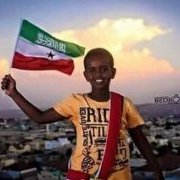


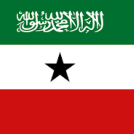
.thumb.jpeg.79edf7e652eaa56ebe85e2c649f6cd14.jpeg)



